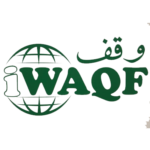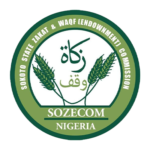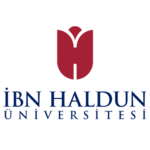Empowering Wakaf Institutions: The Digital Wakaf Induction Program
By Ibrahim Abdul Mugis, President Awqaf Africa
Introduction:
Awqaf Africa proudly presents the Digital Wakaf Induction Program, a pioneering initiative designed to equip individuals with advanced skills in software engineering, digital marketing, data science, and cloud computing, tailored specifically for the unique context of digital wakaf in Africa. This comprehensive program aims to bridge the gap between traditional wakaf practices and modern technological advancements, ensuring that wakaf institutions across the continent remain relevant and impactful in the digital age.
In Islam, the pursuit of knowledge is not just encouraged but deemed obligatory. The Prophet Muhammad (peace be upon him) emphasized this, stating that “Seeking knowledge is obligatory upon every Muslim.” This principle underscores the importance of education and lifelong learning, encouraging individuals to acquire knowledge that benefits both themselves and their communities. Additionally, the Prophet (peace be upon him) highlighted the significance of excellence in conduct and character, stating that “The best among you are those who have the best manners and character.” This emphasizes the importance of embodying ethical principles and moral values, even in the pursuit of knowledge and technology.
The Quran also provides guidance on how to convey messages effectively, stating: “Invite to the way of your Lord with wisdom and good instruction, and argue with them in a way that is best.” (Surah An-Nahl, 16:125) This verse emphasizes the importance of wisdom, kindness, and sincerity in communication, ensuring that interactions are characterized by respect, compassion, and understanding.
Month 1: Introduction and Foundations (Software Engineering):
The first month of the Digital Wakaf Induction Program lays the groundwork for a transformative journey into the convergence of technology and wakaf institutions. Participants delve into the rich history and evolution of wakaf, exploring its cultural, legal, and social dimensions. Through engaging discussions and immersive sessions, participants gain a profound understanding of wakaf’s impact on communities throughout history and in contemporary times.

Simultaneously, participants are introduced to the core principles of software engineering, setting the stage for the technical aspects of the program. Through interactive lectures and practical workshops, participants learn about algorithms, data structures, and programming languages, gaining practical insights into the software development lifecycle. They are equipped with the skills needed to design, develop, and deploy innovative solutions tailored to the unique needs of wakaf institutions.
Throughout the month, participants engage in critical reflections, examining the intersection of technology and Islamic principles. They explore how software engineering can uphold ethical values and serve the greater good, aligning with the teachings of compassion, justice, and stewardship inherent in Islam. By integrating Islamic ethics with technical expertise, participants lay the foundation for a holistic approach to wakaf management, grounded in faith, integrity, and excellence.
Month 2: Application of Digital Technologies (Digital Marketing and Data Science):
In the second month of the Digital Wakaf Induction Program, participants embark on a journey into the realm of digital technologies, focusing on digital marketing and data science. Building upon the foundational understanding acquired in the previous month, participants explore how these cutting-edge tools and techniques can revolutionize wakaf management and outreach efforts.
Drawing inspiration from the teachings of the Prophet Muhammad (peace be upon him), participants are reminded of the importance of effective communication and outreach. The Prophet emphasized that “The best among you are those who are most beneficial to others,” highlighting the value of utilizing modern tools and platforms to spread awareness about wakaf initiatives and engage with communities in meaningful ways.

In the realm of digital marketing, participants delve into a wide array of strategies aimed at promoting wakaf initiatives and raising awareness. From social media marketing to search engine optimization, participants learn how to leverage digital platforms to amplify their message and reach a wider audience. Through hands-on exercises and case studies, participants develop practical skills in crafting compelling content, engaging with stakeholders, and measuring the impact of their digital campaigns.
Simultaneously, participants explore the power of data science in informing strategic decision-making and optimizing wakaf operations. They learn how to collect, analyze, and interpret data to gain valuable insights into donor behavior, community needs, and program effectiveness. By harnessing the power of data-driven insights, participants can make informed decisions that maximize the impact of wakaf initiatives and drive meaningful change in their communities.
Month 3: Advanced Technologies (Cloud Computing):
In the fi nal month of the Digital Wakaf Induction Program, participants delve into advanced technologies, with a specific focus on cloud computing. Building upon the foundational knowledge acquired in the previous months, participants explore how cloud computing can revolutionize wakaf institutions’ operations, scalability, and innovation.
Drawing inspiration from the teachings of the Prophet Muhammad (peace be upon him), participants are reminded of the importance of mastering skills to benefit others. The Prophet (peace be upon him) said: “The most beloved deeds to Allah are those that are consistent, even if they are small.” This Hadith emphasizes the signifi cance of consistency and excellence in all endeavors, including the adoption of advanced technologies like cloud computing to enhance wakaf institutions’ efficiency and impact.

Participants delve into the concepts of cloud platforms, security, deployment models, and cloud-native architecture. Through interactive sessions and hands-on labs, participants gain practical experience in leveraging cloud technologies to streamline operations, enhance data security, and facilitate collaboration within wakaf institutions.
Furthermore, participants explore DevOps practices, emphasizing the importance of continuous integration, delivery, and deployment in maximizing efficiency and innovation. They learn how DevOps principles can drive automation, scalability, and reliability in wakaf institutions’ digital infrastructure, enabling them to adapt and thrive in an ever-evolving technological landscape.
As participants navigate the complexities of cloud computing, they are guided by the Quranic injunction to “invite to the way of your Lord with wisdom and good instruction.” (Surah An-Nahl, 16:125) This verse serves as a constant reminder of the importance of utilizing technology responsibly and ethically, ensuring that wakaf institutions’ digital transformation aligns with Islamic principles of justice, equity, and stewardship.

By the conclusion of the Digital Wakaf Induction Program, participants emerge as competent professionals equipped with the technical expertise and strategic vision to drive digital transformation in wakaf institutions across Africa. With a deep understanding of wakaf principles, digital technologies, and innovative practices, participants are poised to lead initiatives that enhance the efficiency, transparency, and impact of wakaf organizations, contributing to the socio-economic development and well-being of communities across the continent.
In summary, the Digital Wakaf Induction Program represents a pivotal step towards harnessing the power of technology to advance the noble objectives of wakaf, ensuring its continued relevance and impact in the digital age. By integrating Islamic principles with cutting-edge technological skills, participants are empowered to lead the modernization and growth of wakaf institutions across Africa.

Throughout the program, participants engage in a variety of learning activities, including lectures, practical assignments, case studies, group projects, and mentorship sessions. Assessment is conducted through quizzes, assignments, group projects, and a fi nal capstone project, ensuring participants’ understanding and application of key concepts and skills.
The impact of the Digital Wakaf Induction Program extends far beyond its duration. Graduates emerge as ambassadors of change, equipped with the knowledge, skills, and passion to drive innovation and transformation within wakaf institutions and communities. By embracing technology and upholding Islamic values, they become catalysts for positive change, contributing to the socio-economic development and well-being of communities across Africa.
As we look towards the future, Awqaf Africa remains committed to advancing the cause of wakaf and empowering individuals to make a difference in their communities. Through initiatives like the Digital Wakaf Induction Program, we strive to create a brighter, more inclusive future for all, guided by the timeless principles of compassion, justice, and stewardship.
Join us on this journey of transformation and empowerment. Together, we can harness the power of technology to build a better world, one wakaf institution at a time.
References:
The Quran, Surah An-Nahl, 16:125
Hadith on seeking knowledge: Sahih Bukhari, Book 3, Hadith 50
Hadith on good manners and character: Sahih Bukhari, Book 76, Hadith 106
Hadith on consistency in deeds: Sahih Bukhari, Book 76, Hadith 469
9 Comments
-
Usman Abdul-Alim Turay says:
I think this is a great thought. This will really empower members to be relevant in all activities as the case may be. Am so excited to have such experience.
-
Chernor Kana Bah says:
I really appreciate and Love this innovative Initiative education program.
Empowering us as youth is required and help us to maintain our moral values in Islam.
I’m highly Interested. -
Abdoulaye Sadio DIALLO says:
Since this programm help to mainntain muslim youth moral to go ahead sustaible developpement,
I’m proud. to be part of it -
Ismail Zakariyyah Sanni says:
This really a mission in helping the youths from being a degraded vulture to a dignified eagle… Awqaf Africa ☺️
-
Olusola Yusuf Abiola says:
Nice initiatives and intellectual development
Leave a Reply Cancel reply

Awqaf Africa is a prominent organization dedicated to empowering communities across the African continent. Established to foster sustainable development and social welfare, Awqaf Africa focuses on harnessing the potential of endowments (awqaf) to drive positive change. Through strategic initiatives, partnerships, and impactful projects, Awqaf Africa endeavors to address socio-economic challenges and promote prosperity within African societies.
- Choose your favourite cause
- Register to our website !
- Donate the amount you like
- Stay tuned about cause







Masha Allahu it’s quite amazing